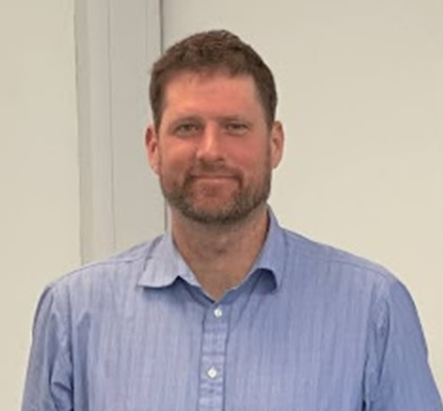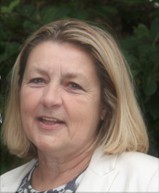Forthcoming events
Events for 2025-2026.
Members and visitors are welcome at all meetings.
Meetings are held either online via Microsoft Teams, or as physical meetings. The choice will be shown here when details are available. In either case they will commence at 7:00 pm.
Wednesday 24th September 2025, at 7:00pm:-
A technical and operational overview of Airlander, by Head of Airworthiness, Andrew Barber.
(Microsoft Teams Presentation).
Overview of presentation:
Get a technical and operational overview of Airlander, an ultra-low emissions hybrid aircraft, from Hybrid Air Vehicles’ Head of Airworthiness. This talk will cover Airlander’s design, engineering, and unique operational capabilities in sustainable aviation.

Airlander 10 in Desert
Speaker bio:
Born in Yorkshire in 1965, Andrew grew up an aviation obsessive. With sponsorship from Rolls Royce (jet engines, Derby), Andrew gained an Aeronautics-Astronautics degree at Southampton University. After two post-graduation years at Rolls Royce, Andrew went to Lotus Engineering then spent twelve years in the car industry, culminating in his own sports car manufacturer. In 2004, Andrew returned to aviation. Since then, Andrew has worked for seven aviation companies including, since 2015 HAV. For fun, Andrew has flown gliders and more recently, small aeroplanes. Andrew takes great pleasure in a career of being well paid to play with large toys!
Wednesday 29th October 2025, at 7:00 pm :-
Topic: Weeds: Problems, Possibilities and the Future of Farming
Presenter: Dr. Helen Metcalfe, Rothamsted Research.
(MS Teams presentation).
Synopsis:
Weeds are the single largest contributor to crop losses worldwide. While they may seem like a nuisance in the garden, understanding how to manage them is vital for global food security. In this talk, Helen will explore what we mean by a “weed,” why farmers need to control them, and why they can also be beneficial. She will introduce the science of weed modelling and how researchers use computer simulations to predict weed growth, spread and management outcomes. She will also show how these tools can inform farming and policy decisions. The talk will also look at real-world case studies, including the growing public concerns and media debate around the controversial weed killer glyphosate, and blackgrass, a notoriously problematic weed for UK farmers. Together, these examples will highlight both environmental and technological approaches to integrated weed management, including new precision spraying methods. Attendees will gain insights into the hidden world of weeds, the challenges of balancing food production with sustainability, and how engineers and scientists are shaping the future of crop protection.



Bio:
Dr Helen Metcalfe is a Research Scientist at Rothamsted Research, the UK’s oldest agricultural research institute. Her work explores how agricultural management can achieve the fine balance needed to produce enough food for everyone in an environmentally friendly and climate-resilient way. She focuses particularly on agricultural weeds, which can be both a detriment and an asset in farming systems. Helen develops and applies computer models to study weeds and agroecosystem dynamics at scales ranging from individual fields to whole farm landscapes. Living with a chronic illness has led her to embrace a slower way of life, and in her spare time she enjoys sewing her own clothes and reading fantasy and dark academia novels.
Wednesday 12th November 2025, at 7:00pm
Topic: Capturing the Cosmos: A journey through Astrophotography.
Presenter: John Nedelcu, Mechanical design engineer at Eaton.
(In person at Eaton). Directions to venue are on the About page.
Synopsis:
Astrophotography blends art, science, and engineering to reveal the hidden beauty of the night sky.
This talk explores how modern amateurs capture faint galaxies and nebulae using sensitive cameras, specialized filters, and precise tracking mounts.
We’ll look at how concepts like gain, exposure, and focal ratio apply beyond normal photography, and why narrowband imaging is key to recording detail invisible to the naked eye.
The presentation also examines the technology behind mounts and guiding systems that keep stars perfectly sharp during long exposures, and the digital processing that transforms hours of raw data into striking images of the cosmos.


Elephant's Trunk Nebula
About the Presenter:
John Nedelcu is a Mechanical design engineer at Eaton who began his journey into astrophotography in 2022. Combining a lifelong interest in space exploration and photography, he quickly discovered the hobby’s steep learning curve — balancing software and hardware troubleshooting, cold nights, custom tool design, and plenty of lost sleep. Despite the challenges, he finds it deeply rewarding to capture and share the hidden beauty of the universe that few ever get to see.
Refreshments from 6:45pm.
The presentation will be followed by an opportunity for informal discussion and conversation over a buffet supper. A donation of £2 per person is requested as a contribution to costs.
Members, non-members and guests are most welcome.
Wednesday 28th January 2026, at 7:00pm
Topic: The evolution of soil measurement at Rothamsted, from the 19th century to today.
Presenter: Will Rickard of Rothamsted.
(Microsoft Teams Presentation).
William Rickard is a soil physicist at Rothamsted Research whose work focuses  on the hidden architecture of soils and how root–soil–water interactions shape crop resilience and climate outcomes. His projects range from work on the long-term field and developing new frameworks for early-warning indicators of soil degradation. He also works on developing new sensing technologies to support research and agricultural decision making. Alongside his scientific research, he is deeply engaged in entrepreneurial ventures translating soil science into farmer-led tools, and he writes widely on the intersections of science, society, and story.
on the hidden architecture of soils and how root–soil–water interactions shape crop resilience and climate outcomes. His projects range from work on the long-term field and developing new frameworks for early-warning indicators of soil degradation. He also works on developing new sensing technologies to support research and agricultural decision making. Alongside his scientific research, he is deeply engaged in entrepreneurial ventures translating soil science into farmer-led tools, and he writes widely on the intersections of science, society, and story.
Synopsis:
This talk will explore the evolution of soil measurement at Rothamsted, from the pioneering experiments of the 19th century to today’s efforts to probe the hidden dynamics of the root–soil–water system. I will highlight recent findings on how crops actively regulate root water uptake, and discuss the challenges of developing sensors that reach below ground to capture these processes in real time. Moving beyond measurement alone, our work is increasingly focused on inferring function: interpreting data not just as numbers, but as indicators of resilience, thresholds, and early-warning signals of change. By linking history, field experiments, and sensor innovation, the talk will reflect on how measurement and control in soils can underpin both fundamental understanding and practical decision-making for agriculture and the environment.
Wednesday 4th March 2026, at 7:00pm
Topic: Let’s get buzzing – growing London’s pollinator numbers.
Presenter: Dr. Heather Barrett-Mold OBE.
(In person at Eaton). Directions to venue are on the About page.

London is fortunate to have green areas covering nearly a third of the capital. Some capital cities have nothing near that amount. The challenge is to encourage management of these green spaces in a way that embraces the needs of a range of pollinators.
Pollinating London Together (PLT) is a charity that was created with the vision to help enhance green spaces within London by promoting habitats where native pollinators can thrive. With a longer term vision to create a template for change and action through leadership that can be implemented in urban environments across the UK.
PLT aims to champion and enhance pollinator friendly green spaces – starting in the City of London - allowing all pollinators including bees, butterflies, moths, beetles and bugs to flourish. Urban green space with its ecological diversity, is one of the most important places for pollinators because of the variety of food sources and potential nesting sites as well as helping with climate change, biodiversity and wellbeing. Insects are in severe decline but such an important part of our ecosystem and essential to enable food production - it is estimated that 1 in 3 bites of food we eat depend on pollinators. The global economy is 100% dependent on nature and natural resources and we know that nature has been historically mis-valued and its economic benefits distributed unevenly and insects have been in dramatic decline due to habitat loss and the use of pesticides.
PLT’s Objectives
PLT’s activities are designed to address three specific objectives:
• To redress the decline in pollinators in urban environments by promoting action to increase pollinator-friendly planting and habitats in the City of London and its immediate environs
• To raise awareness of the human benefits of pollinators and pollinator-friendly planting across the wider population of residents, workers, and organisations in the City of London
• To inform and encourage companies, organisations, and individuals to make meaningful decisions to make this happen.
Through this partnership we have become involved in wider groups such as the DEFRA Pollinator Action Strategy Group and Historic Royal Palaces Moat advisory group for the Tower of London.
We also enagage with schools and educational days within the City of London and surrounding areas to extend the understanding and knowledge of the importance of bio-diversity and pollinators.
By enhancing biodiversity networks across the City it helps to improve green spaces for pollinators. Pollinators do not recognise political boundaries and we therefore plan to link the city with surrounding areas.
For further information please visit our website at:
www.pollinatinglondontogether.com
 Dr Heather Barrett-Mold OBE
Dr Heather Barrett-Mold OBE
Heather is Vice/Co Chair of the Pollinating London Together Charity which she co founded in 2020, and leads the science and education work. The main objective is to prevent the decline of pollinators initially in the City of London and beyond and help greenspace managers to improve habitats with pollinator friendly planting and space for nesting.
Heather is a Past Master of the Gardeners Livery Company, and founder member of the Livery Climate Action Group.
Heather is a Chartered Scientist, Chartered Horticulturist, Chartered Environmentalist and Chartered Biologist. She was Principal/CEO of Pershore Group of Colleges and responsible for a 600 acre mixed farm and fruit production and cider unit. She was a member of the Government Advisory Panel on Sustainable Development Education for its lifetime of 5 years, and then Advisor on the Secretary of State Sounding Board. Heather was an expert with the Commission for Sustainable London 2012; a body engaged with delivering a sustainable Olympic Park. She was until recently Vice Chair of Governors at Capel Manor College. She has been a Secretary of State Board member for the Chilterns Area of Outstanding Natural Beauty. She is a Fellow of the Linnaean Society, Vice President of the Institution of Environmental Science, Past President of the Institute of Horticulture, and previous Chair of the Science Council.
Refreshments from 6:45pm.
The presentation will be followed by an opportunity for informal discussion and conversation over a buffet supper. A donation of £2 per person is requested as a contribution to costs.
Members, non-members and guests are most welcome.
Further details of our 2025-2026 programme of meetings will be shown here when available.
Previous events
Below is a summary of the events held in 2025-2026.
Videos, where they are available, may be viewed from the 'Past Events' page.
If you need any additional information please contact Tom Purcell by email or 07306 757000.
Please refer to 'Past Events' for presentations from previous year's programmes.